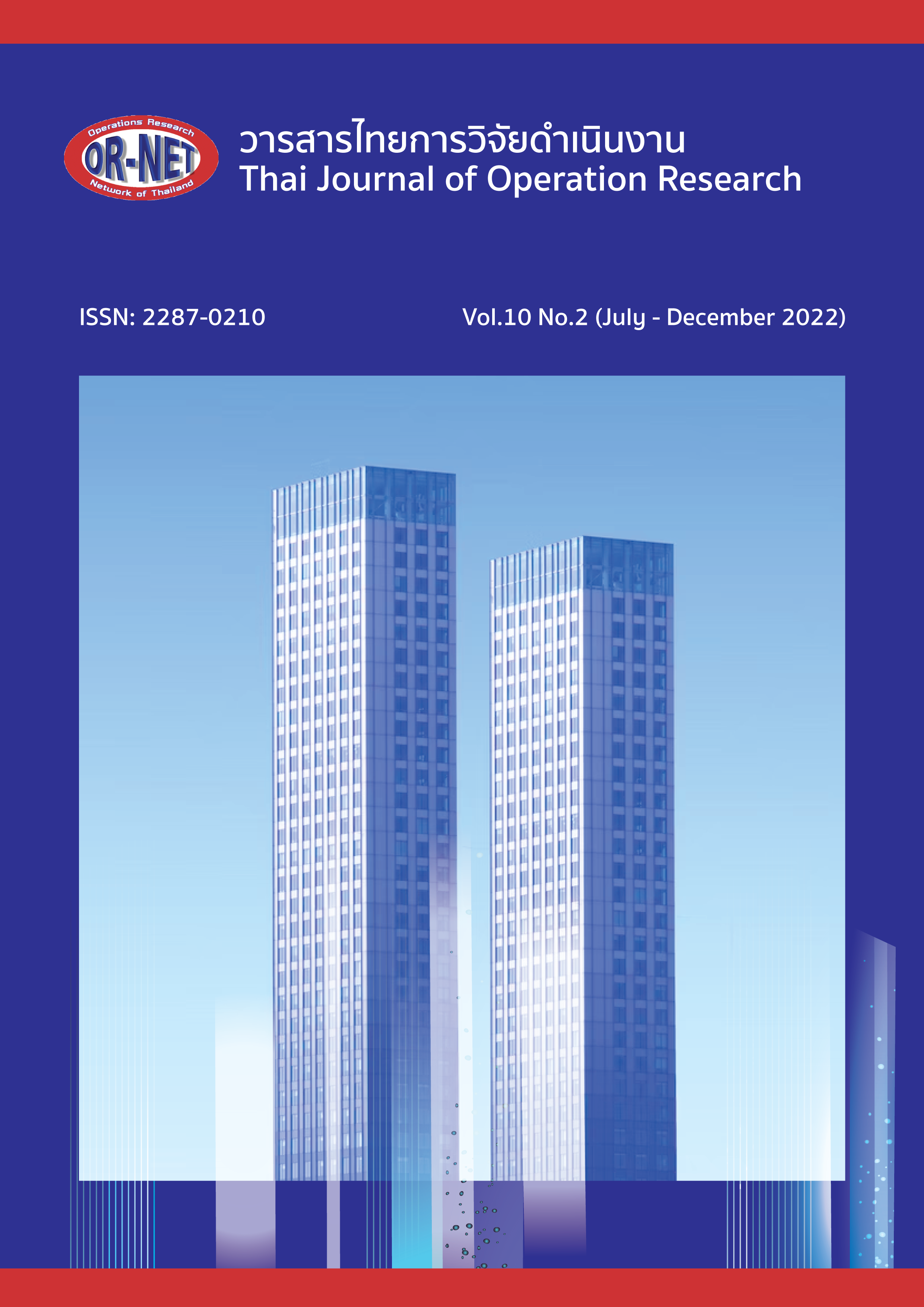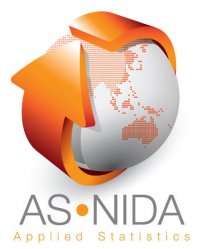A Prediction of Travel Time by Machine Learning Approaches with Mobile Probe Data in Bangkok
Keywords:
prediction, travel time, machine learning, mobile probe dataAbstract
Last mile delivery is one of main transportation processes that accounts for more than 75% of total supply chain cost; however, the efficiency of such a process is relatively low, due largely to uncertainty in travel times across the day. In order to improve this process, various machine-learning based approaches are herein investigated for the development of more accurate travel time prediction models, using mobile probe data, collected by ITic, as a case study. For ease of implementation, we have preselected the information of taxis that currently provide services within the area of Bangkok (about 4.8 million records) for the construction of travel time prediction models. K-fold cross validation is also adopted to help reduce overfitting issues. Our results indicate that XGBoost is the most effective algorithm that provides the least RMSE (166.3069), while spending only 14.51 seconds in the model construction phase. Nonetheless, LightGBM and CatBoost seem to have good potentials for further studies as they provide relatively low RMSEs and computational times, when compared to other machine-learning approaches.
References
F. Li, Z-P. Fan, B-B. Cao and X. Li, “Logistics service mode selection for last mile delivery: an analysis method considering customer utility and delivery service cost,” Sustainability., vol. 13, no. 1, p. 284, 2021.
R. Gevaers, E. Van de Voorde and T. Vanelslander, “Characteristics of innovations in last-mile logistics-using best practices, case studies and making the link with green and sustainable logistics,” Association for European Transport and contributors., pp. 1-21, 2009.
K. K. Boyer, A. M. Prud'homme and W. Chung, “The last mile challenge: evaluating the effects of customer density and delivery window patterns,” Journal of business logistics., vol. 30, no. 1, pp. 185-201, 2009.
J. D. Cortes and Y. Suzuki, “Last-mile delivery efficiency: en route transloading in the parcel delivery industry,” International Journal of Production Research., pp. 1-18, 2021.
MARKETINGOOPS!, “3 กลยุทธ์ ‘ธุรกิจขนส่งพัสดุ’ รับมือสงครามราคา ปริมาณส่ง 4 ล้านชิ้นต่อวัน มูลค่า 6.6 หมื่นล้าน,” [ออนไลน์]. แหล่งที่มา:
https://www.marketingoops.com/reports/industry-insight/transport-and-logistics-strategy-2020/. [วันที่เข้าถึง 11 พฤษภาคม 2564].
Y. Geng, E. Liu, R. Wang and Y. Liu, “Deep Reinforcement Learning Based Dynamic Route Planning for Minimizing Travel Time,” in 2021 IEEE International Conference on Communications Workshops (ICC Workshops), 2021.
N. Frohner, M. Horn and G. R. Raidl, “Route duration prediction in a stochastic and dynamic vehicle routing problem with short delivery deadlines,” Procedia Computer Science., vol. 180, pp. 366-370, 2021.
TomTom, “TomTom Traffic Index ranking 2020,” [ออนไลน์]. แหล่งที่มา: https://www.tomtom.com/en_gb/traffic-index/ranking/. [วันที่เข้าถึง 11 พฤษภาคม 2564].
G. Yu and Y. Yang, “Dynamic routing with real-time traffic information,” Operational Research., vol. 19, no. 4, pp. 1033-1058, 2019.
S. Parinya, “Developing applications for vehicle routing problems with real time data acquisition,” International Journal of Simulation - Systems, Science & Technology., vol. 20, no. 2, pp. 1-6, 2019.
Hadiyanto, W. Budi, Maryono, E. Subowo, E. Sediyono and Farikhin, “Ant Colony Algorithm for Determining Dynamic Travel Routes Based on Traffic Information from Twitter,” in The 4th International Conference on Energy, Environment, Epidemiology and Information System (ICENIS 2019), 2019.
L. Huang and L. Xu, “Research on Taxi Travel Time Prediction Based on GBDT Machine Learning Method,” in 2018 Eighth International Conference on Instrumentation & Measurement, Computer, Communication and Control (IMCCC), 2018.
B. Deb, S. R. Khan, K. T. Hasan, A. H. Khan and M. A. Alam, “Travel Time Prediction using Machine Learning and Weather Impact on Traffic Conditions,” in 2019 IEEE 5th International Conference for Convergence in Technology (I2CT), 2019.
D. Lin, W. Tsao, C. Yu, H. Liu and Y. Chang, “The Travel Time Prediction by Machine Learning Methods with Traffic Data in Chiayi City, Taiwan,” in 4th International Conference on Electromechanical Control Technology and Transportation (ICECTT), 2019.
M. Mohri, A. Rostamizadeh and A. Talwalkar, Foundations of machine learning, MIT press, 2018.
T. Dietterich, “Overfitting and undercomputing in machine learning,” ACM computing surveys (CSUR)., vol. 27, no. 3, pp. 326-327, 1995.
J. D. Rodriguez, A. Perez and J. A. Lozano, “Sensitivity analysis of k-fold cross validation in prediction error estimation,” IEEE transactions on pattern analysis and machine intelligence., vol. 32, no. 3, pp. 569-575, 2009.
S. Oh, Y.-J. Byon, K. Jang and H. Yeo, “Short-term travel-time prediction on highway: a review of the data-driven approach,” Transport Reviews., vol. 35, no. 1, pp. 4-32, 2015.
B. Qiu and W. Fan, “Travel time forecasting on a freeway corridor: a dynamic information fusion model based on the random forests approach,” Smart and Resilient Transportation., vol. 3, no. 2, pp. 131-148, 2021.
J. W. C. Lint, “Reliable real-time framework for short-term freeway travel time prediction,” Journal of Transportation Engineering., vol. 132, 2006.
Downloads
Published
How to Cite
Issue
Section
License

This work is licensed under a Creative Commons Attribution-NonCommercial-NoDerivatives 4.0 International License.




